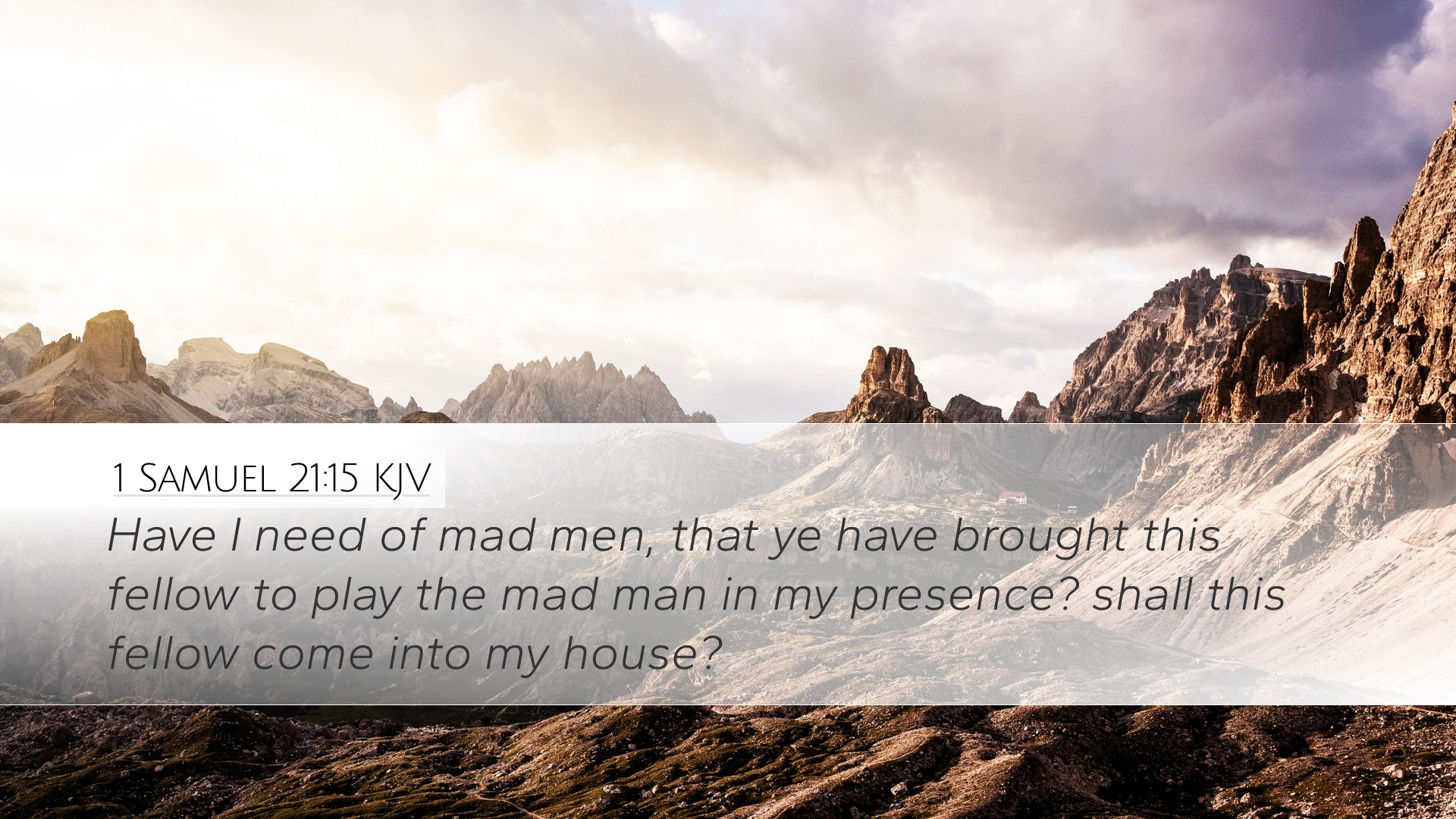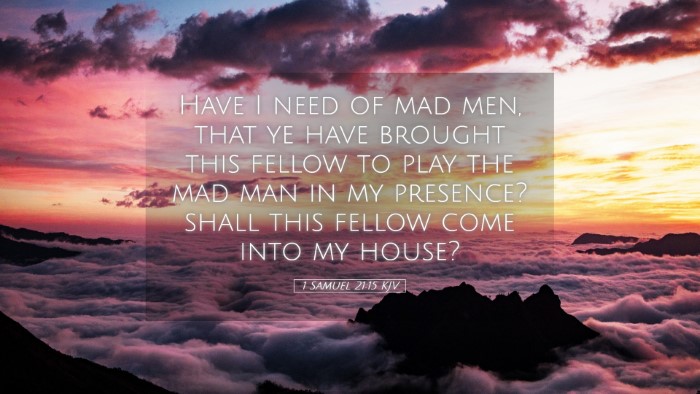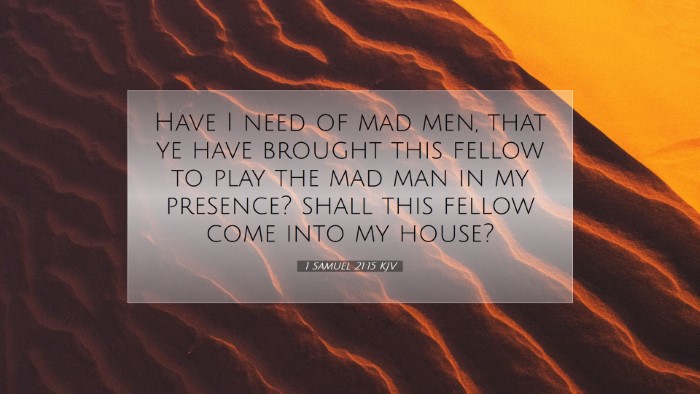Commentary on 1 Samuel 21:15
Verse Text: "Have I need of mad men, that ye have brought this fellow to play the mad man in my presence? shall this fellow come into my house?" (1 Samuel 21:15, KJV)
Introduction
This verse captures a pivotal moment in the narrative of David's life as he seeks refuge from Saul. As we explore the various public domain commentaries, we will delve into the implications of this passage for pastoral practice, theological study, and the overall biblical narrative concerning God’s chosen leaders.
Contextual Analysis
In the preceding chapters, we witness the escalation of tension between David and Saul. Having fled from Saul’s murderous intent, David seeks asylum with Achish, the king of Gath. This verse illustrates a critical juncture in which David's desperate situation leads him to feign madness as a survival tactic.
David's Strategic Feigned Madness
According to Albert Barnes, David's act of pretending to be mad was a calculated move to distract from his identity as a fugitive from the king of Israel. The strategy reflects a deep understanding of the social and political dynamics at play in Gath.
Matthew Henry notes that the act of madness in the ancient Near East often elicited compassion and avoidance; the mad were considered touched by the divine, thus rendering them sacred and untouchable. David's antics were designed to conceal his true purpose and identity.
Theological Implications
This event raises significant theological questions regarding God’s sovereignty and providential care. David, though chosen by God, is at a low point, illustrating that being in God’s service does not exempt one from hardship. Adam Clarke emphasizes that divine protection is often manifested through seemingly irrational means and circumstances.
Character Study: David
David's behavior in this passage reveals layers of his character—his resourcefulness, faith under pressure, and the duality of human nature. Although he is labeled a man after God's own heart, this episode underlines the reality of fear and survival instincts in dire situations.
Leadership Under Duress
Henry notes that true leadership is often tested during crises; David’s response reflects a pragmatic and often difficult decision-making process. Leaders in ministry can learn from this as they face their personal and congregational challenges, navigating through fear and uncertainty.
Lessons for Pastors and Theologians
- Integrity in Leadership: How do we maintain integrity under pressure? David's approach presents a complex model of leadership that warrants reflection and dialogue.
- God’s Presence in Distress: Recognizing that God's providence can manifest even in our imperfect actions can encourage those serving in ministry to understand that God is still at work in their struggles.
- Community and Support: Reflect on the support systems within the church. Achish’s reaction illustrates the necessity of community in times of personal crisis, demonstrating how congregations can provide sanctuary.
Critical Reception of Achish's Response
Achish’s response in this passage demonstrates a pragmatic view toward the situation. His rhetorical question captures disbelief and disdain, as he reflects on David's acts. This indicates a divided perception of David in foreign lands versus his status in Israel.
Cultural Considerations
Clarke posits that Gath’s culture viewed madness with a unique lens, which meant that Achish would interpret David's behavior as a clear indication of his character—or lack thereof. Understanding the cultural context allows modern readers to better grasp the complexities of the narrative.
Application for Modern Readers
This situation teaches that one can often find themselves in a place where identity may be questioned or manipulated for survival. Pastors and students can draw parallels within their congregations where the pressures of life might lead congregants to act out in ways that seem inconsistent with who they are in their spiritual journey.
Concluding Thoughts
In conclusion, 1 Samuel 21:15 serves as a profound reflection of the human condition, the nature of leadership, and the intricate ways God provides for His people—even amid chaos. The commentaries by Matthew Henry, Albert Barnes, and Adam Clarke provide valuable insights into understanding this passage's richness. Pastors, students, and scholars alike can draw deep theological truths from this seemingly simple verse, prompting reflection on personal faith and the nature of divine providence in attempting circumstances.


